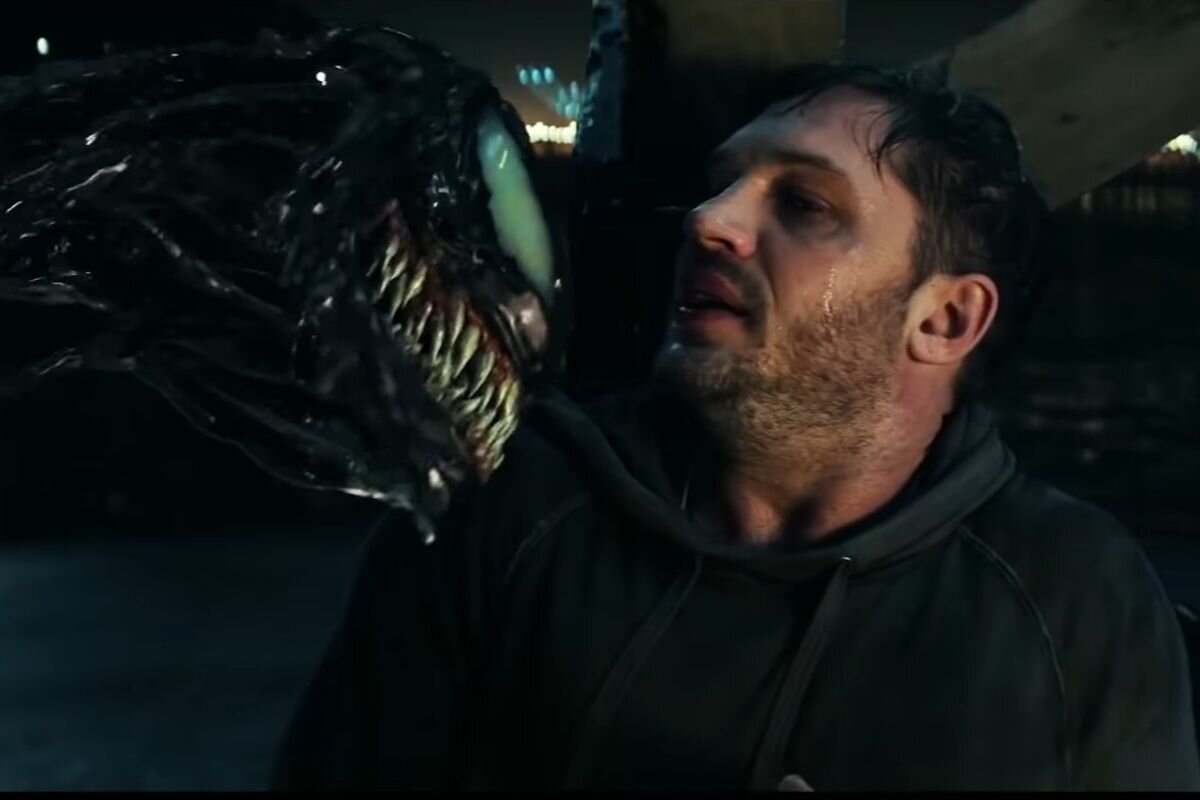[Review] And Then We Danced is a Glorious Coming-Of-Age Story
In 2013, members of Georgia’s alt-right interrupted a Pride event in the capital of Tbilisi where a group of around 50 queer activisits had gathered to celebrate the International Day Against Homophobia. The alt-right group numbered in the thousands and soon the animosity escalated to violence, sending over a dozen victims to the hospital. The counter-protestors threw rocks and fists. What’s worse is that this attack was lead by Orthodox priests and weren’t stopped because, “priests are above the law in Georgia.”
This depressing moment is what motivated writer/director Levan Akin to make And Then We Danced, a coming-of-age tale set in the world of The Georgian National Ensemble, an incredibly conservative realm of Georgian society. Dance is about the nation’s spirit and tradition. “From the top!” the film begins as Merab (Levan Gelbakhiani) dances the Adjarian duet with Mary (Ana Javakishvili), his dance partner of ten years. But Aleko (Kakha Gogidze) immediately stops him with a scowl.
“You’re too soft,” he tells Merab. “You need to be like a monument.”
Merab is stuck in the middle of competing needs. He rushes from dance to his job as a waiter where he gets meager tips and is forced to beg the owner for an advanced portion of his paycheck to keep the lights on at his apartment where he lives with his grandmother, unemployed mother and his drunken brawler of a brother, David (Giorgi Tsereteli). Merab and David are both learning dance, just as their mother and father and grandmother did. It’s a highly acclaimed profession because, as dance instructor Aleko reiterates, “It isn’t just about achieving perfection. It’s the spirit of our nation.”
And the spirit of the Georgian nation has no room for softness, evidenced when newcomer named Irakli (Bachi Valishvili) shows up with an earring and is immediately told to remove it. Irakli immediately catches Merab’s eye, partly because Irakli is a great dancer and a threat to Merab’s chance to audition for a chance at a once-in-a-lifetime spot at the Ballet. But mostly because of the way Irakli moves. Something about Irakli draws Merab to him and the two begin rehearsing together in the mornings. As the two get closer, they make the first, furtive stumbles towards love and discovering themselves.
The lush visual language employed by Lisabi Fridell immediately sweeps you off your feet with its fluidity. It captures the movement of dance with a fervent sense of wonder, but then bathes the more intimate moments with pure golden radiance. Even as day turns to night, the sun still feels omnipresent and colors the characters’ lives with such a radiant light that it feels at odds with the inner turmoil they’re dealing with. One standout moment is set at a party where Merab receives some devastating news. The camera follows him through the party that slowly turns unruly until it loses him...only to catch him outside a window to capture his reaction from a distance.
It’s easy for the camera to love Merab, though, because he’s played with stunning effortlessness by newcomer Levan Gelbakhiani. A dancer, Levan imbues his character with a floppy-haired physicality that immediately brought to mind another lovelorn man coming to term with his first love in Call Me By Your Name. His physicality isn’t just left on the dancefloor, though; even in interactions with his costars, he headbutts their shoulders and lays on them with a sense of freeing intimacy. But there’s also something incredibly vulnerable to Merab, who pulls his knees to his chest and holds onto them or anxiously mouths his necklace. It’s a nuanced performance that ranges from showy and powerful to understated softness.
In the most intimate and spectacular moment of individuality, Merab drunkenly dances to Robyn’s “Honey.” With lyrics like, “Come get your honey”, he sways, shirtless as the perfectly radiant sunlight shines through the window, illuminating his body in gold as he takes a drag from his cigarette. Later, a shared moment between Merab and Irakli turns erotic with the two sharing a cigarette, playfully taking it from another before it devolves into playfighting and more. It’s the intimate moments like this when And Then We Danced is at its best; full of sensuality and endless possibilities.
The romance story follows familiar beats and the characters are mostly broadly drawn. Mary, Merab’s dancing partner, is given little to work with, as she watches Merab’s transformation with a worrying eye. Meanwhile, Merab’s masculine and stocky brother David is used as a visual foil to our lanky protagonist but exemplifies the kind of drunken, hypermasculine part of Georgian culture. That said, there’s a tender moment between the two that had me misty-eyed.
There’s another story hanging over Merab and Irakli. It’s the story of a fellow dancer named Zaza, who is only spoken of in hushed whispers; an almost urban legend the dancers use as a warning. Zaza was found having sex with a man and was sent up to a monastary high up in the mountains and his story is breathlessly discussed throughout the film.
Zaza becomes the unseen and unheard result of being gay in Georgia and his story hovers over Merab like a foreboding shroud. A reminder that hangs over the filmmakers themselves, as they were forced through a “corridor of shame,” erected by angry mobs when the film was screened in Tbilisi, where the film is also set. It’s sadly ironic that the film has received the same pushback that its protagonist has had to face.
But, like Merab, it’s a shining, golden beacon of the power of love and identity. A must-watch.


![[Review] And Then We Danced is a Glorious Coming-Of-Age Story](https://images.squarespace-cdn.com/content/v1/5b39608d75f9eef54c62c3f0/1581288027033-4DLA7GLAI0VFLUNR8YFB/MV5BMDJhYzE2MTUtYzBhZC00ZWRhLTkwNDctN2YxNGU3NzM2ZTE4XkEyXkFqcGdeQXVyNDU0NjMyNTQ%40._V1_.jpg)







![[Review] Come to Daddy](https://images.squarespace-cdn.com/content/v1/5b39608d75f9eef54c62c3f0/1581305150335-013G383EA0AX1O3UZSKL/BXVOKxJE.jpeg)
![[Review] Darlin' is a Camp Classic in the Making](https://images.squarespace-cdn.com/content/v1/5b39608d75f9eef54c62c3f0/1561929051904-A77WPIGCXVRM9SLNZQSV/2ZlxmKEl.jpeg)
![[Review] Saint-Narcisse is Oddly Bruce LaBruce's Most Accessible Film](https://images.squarespace-cdn.com/content/v1/5b39608d75f9eef54c62c3f0/1654383316355-YYLL6DTXI43PUZTOTRBH/MV5BZjMwNDAxNTgtODcwZC00MDg4LWFmZmQtYmU0OWQ3NmZkMDZmXkEyXkFqcGdeQXVyMjMyOTY5NjY%40._V1_.jpg)
![[Review] The Wounded Man Tells a Story of Messy Queers Looking for Love and Sex](https://images.squarespace-cdn.com/content/v1/5b39608d75f9eef54c62c3f0/1684943540894-ZUTHUU9O5H5XH3TRHDRQ/9cb9aa_541e8539213946d8b669cfe837245a1d%7Emv2.jpg)